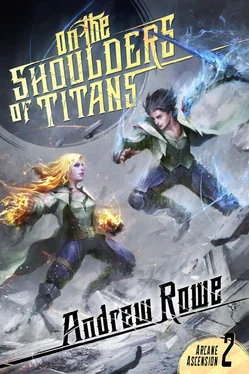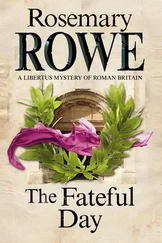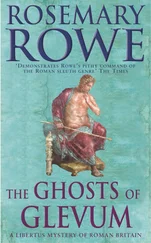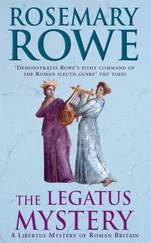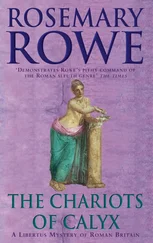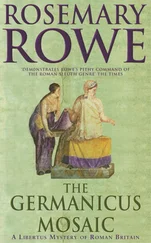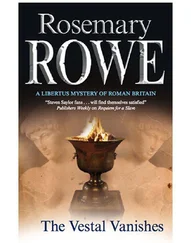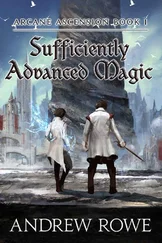Was that all just childish idealism?
I sighed, closing my eyes. “Thanks, Sera. You’re right. We’ll get this sorted out together.”
I gave her a quick hug, the most contact I could tolerate. She relaxed a little, seeming grateful for the contact.
We were very different in that regard.
Then I took the book and headed back to my room to try to rid my doubts.
That, of course, only made me think about them even more.
* * *
A few hours later, I heard a knock at my door. Before I could respond, a voice said, “It’s Patrick! Can I come in?”
I groaned and closed my book. “Yeah, sure.”
Patrick opened the door and stepped in, closing the door behind him. He gave me a conspiratorial “whisper” which was just about as loud as his normal voice. “I heard the news about Tristan! You must be so excited.”
My initial reaction was a combination of horror and frustration that Sera had told him
How could she be the one to break the news to others? Tristan was my brother, after all, not her—
Oh, right.
Even once I’d processed the fact that she probably did have an equal claim to any information about Tristan, I still felt irritated.
I would have waited longer.
Taken some time to verify his identity, figure out a plan.
She could have at least asked me before telling anyone else.
And then it occurred to me that I’d more or less done the same thing to her when I’d made Patrick my retainer without even bothering to consult her about it.
I was still irritated, even knowing that. But at least I knew I was being unfair.
“I’m not sure it’s him,” I replied instinctively.
Patrick nodded, grabbing a chair and sitting down. “Sure, but it sounds like it is! And why would someone bother going to all the trouble to pretend to be your brother? It’s not like either of you is that important.”
I don’t think Patrick realized how insulting that last part sounded.
But I ignored that, processing the answer. “It could be that whoever I’ve been communicating with has figured out who I am and done research to figure out the easiest way to manipulate me.”
“Communicating?” Patrick frowned. “I thought you just heard about Tristan from Katashi.”
I realized I’d made a misstep by assuming Sera had told Patrick everything. “I have a magical item that sends and receives messages from someone in the spire. I found it in my Judgment. The person I’m talking to claims to be Tristan.”
“Wow.” Patrick blinked. “You must be thrilled. I’ve never heard anything about something like that happening before.”
“Yeah. That’s part of why I’m skeptical. It seems too good to be true.”
Patrick leaned closer to me, looking concerned. “Are you feeling okay? I thought you’d be ecstatic, but you look awful. I mean, worse than usual.”
I waved a hand dismissively, trying not to feel insulted. “My injuries are healing fine. My back was pretty beaten up, but—”
“That’s not what I mean, Corin. You look upset .”
I sighed. “I don’t know. I… This is what I wanted, isn’t it?”
Patrick nodded. “Since the moment he disappeared. You never gave up on him. You always believed he was alive, somewhere.”
I shook my head. “I wanted to believe that when he vanished, but the reality sunk in pretty quickly thereafter. I didn’t believe there was a high chance he’d survived. There are a few stories of people escaping the spire years later, like Meredith Hawkins, but…”
“Yeah, that was probably just a con artist with the Shapeshifter attunement. And there was that one you always talked about with Johannes Edington, but he’d stayed in the spire deliberately to try to form long-lasting memories of a Judgment. But he’d told people he was going to do that in advance and packed supplies for it, and even he came out after a couple months.”
I sighed. “Exactly. So, I’d more or less assumed he was probably dead, or otherwise trapped in the spire. I still figured I could fix it, though. Or, rather, the goddess could fix it if I actually made it to the top of the spire. I’ve never understood why more people don’t try to climb the spire for that kind of boon.”
“I think most people find it easier to accept death and move on then to spend their entire lives working toward a goal they might never accomplish. And I think a part of it is that you’re not, uh, quite as devout as most people, Corin.”
I raised an eyebrow. “What do you mean?”
“Well, don’t take this the wrong way, but you always tried to avoid saying the prayers in school when we were younger. I get the impression you don’t have a lot of faith in the goddess.”
I shrugged. “I believe she exists. I just don’t particularly believe in praying to someone who sets up a system that kills thousands of teenagers every year.”
Patrick visibly winced. “That’s…not really fair. She’s testing people for the qualities that are—”
I waved a hand. “I’ve read the scriptures, Patrick. I know the doctrine. ‘The goddess blesses those who demonstrate the courage to risk themselves, the strength to defend others, and the insight to know their own weaknesses.’ I’d think that would encourage more people to take the risks to try to climb the spire and resurrect someone they care about, if anything.”
“That’s just the thing, Corin. You see people dying in the spire as a tragedy…and it is, in a way. But dying also sends their spirits to the goddess’ kingdom, where they will be rewarded, and in time, reborn.”
Ah. That.
I’d never seen that as anything other than an empty platitude for people mourning the dead. A way for people to feel a little less horrible about the awfulness of losing someone they cared about.
But if people were taking it literally, that did go a long way toward explaining why most people weren’t quite as obsessed with bringing back their deceased family members as I was.
Was there something wrong with me?
It wasn’t that I didn’t believe that the goddess existed. I’d seen the spires, earned an attunement, and even met one of her visages in person.
I just couldn’t square the idea of the same entity that makes spires with murderous traps and monsters also being benevolent enough to care for the spirits of the dead in some kind of utopian afterlife.
If Selys was capable of making a utopian kingdom at all, why not extend that to all of us?
I’d read the scriptures for their answers, of course. The idea of adversity testing our resolve and building us into better people. Some verses even indicated that the trials that one underwent in life would help to dictate the specific roles of spirits in the goddess’ kingdom, or even in subsequent lives.
But none of that addressed the inherent unfairness of the mortal world.
A goddess with Selys’ obvious power could be doing more.
I remember reading in the scriptures about the early days when the goddess wrought miracles. Turned rivers aside and made whole lands fertile. She walked the lands in person, healing the injured and curing the diseased.
Then she raised the spires, and the miracles stopped. She’d done her good deeds and turned to playing games with human lives.
Even if the spires had some sort of value for strengthening the spirit, I sincerely doubted that there was any spiritual benefit for the children who died from famine or disease.
If there was any truth to the legends of her miracles, she had the power to stop those tragedies from occurring.
From that, I concluded that she either had chosen to stop helping us, or that she’d never truly had that power at all.
Читать дальше
